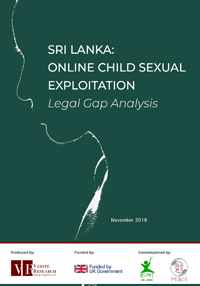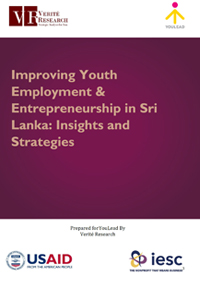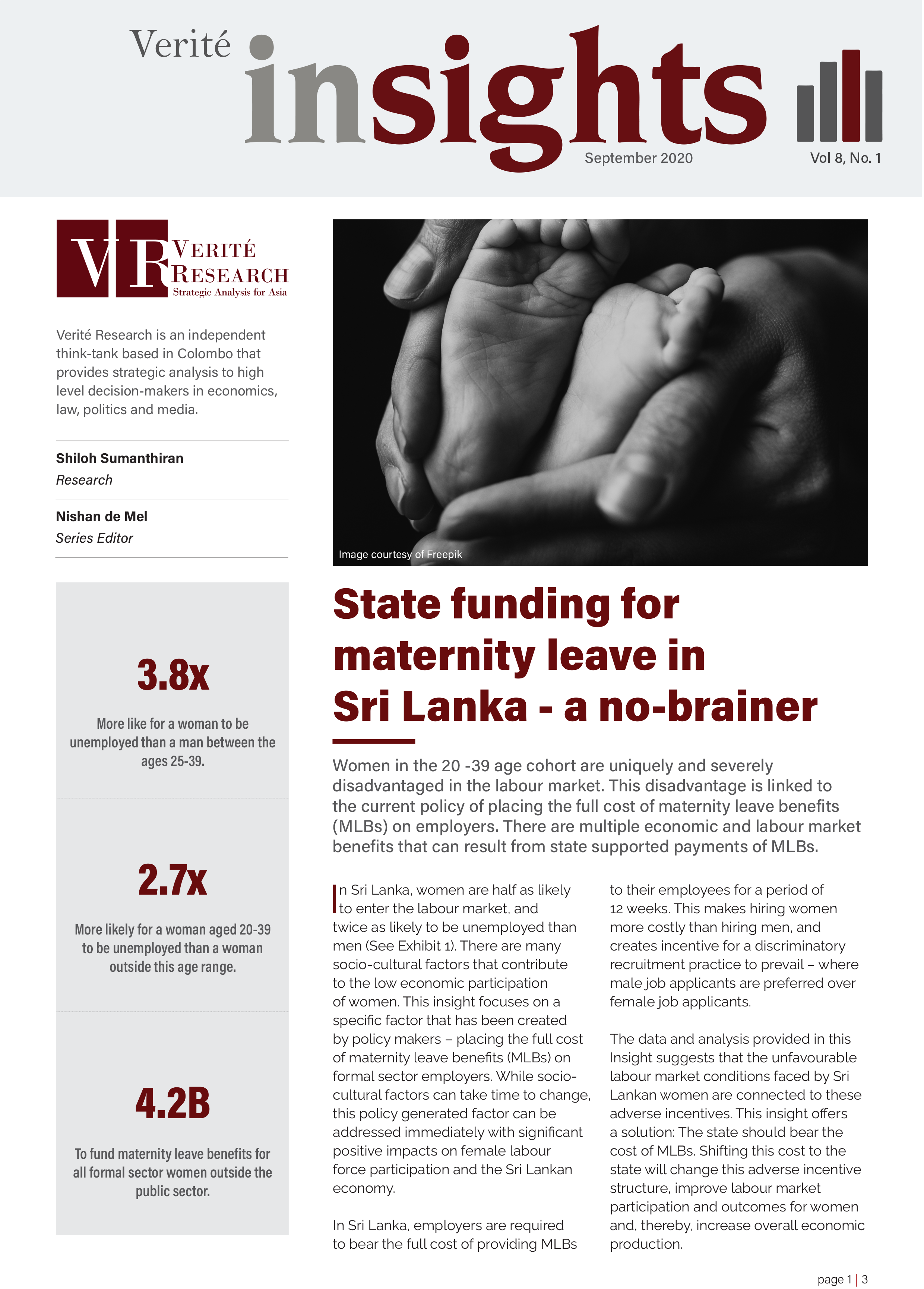2021 අයවැය ඇස්තමේන්තුවල භාවිතා කර ඇති රාජ්ය ආදායම්, මුල්ය සහ ආර්ථික උපකල්පනයන් ගැන ඇගයීමක් මෙම වාර්තාවෙන් සිදුකර තිබේ.
This report provides an assessment and analysis of the fiscal, financial and economic assumptions and estimates applied in the formulation of the 2021 Budget.
The study provides a legal gap analysis by examining the legislative and policy framework pertaining to online child sexual exploitation (OCSE) in Sri Lanka. It provides an overview of OCSE globally and in Sri Lanka.
ශ්රී ලංකාවේ කර්තෘ සංසදය මගින් හඳුන්වා දී ඇති වෘත්තිය ප්රතිපත්ති මාලාව සහ, මාධ්ය හා වාර්තාකරණයට අදාළව ලෝකයේ වෙනත් පිළිගත් ආයතන, අධිකාරීන්, සංවිධානයන් මගින් ඉදිරිපත් කොට ඇති මාධ්ය ආචාර ධර්ම මාර්ගෝපදේශනයන් පරිශීලනය කොට, එම මූලාශ්ර ඔස්සේ ලබාගත් අසම්පූර්ණ මාධ්ය ආචාර ධර්ම ලැයිස්තුවක් එක් මාධ්ය ආචාර ධර්ම මාර්ගෝපදේශනයකට සම්පිණ්ඩනය කිරීමකි, මේ.
‘Condemned but not Deterred: Torture in Sri Lanka’ is the latest study by Verité Research on the issue of systemic torture and deaths in custody in Sri Lanka. The Briefing Note focuses on four of the latest judgments on torture and deaths in custody of the Supreme Court with emphasis on key observations made by the court in condemning the State’s inaction in preventing such acts by law enforcement authorities. It then goes on to identify three crucial issues emanating from the Supreme Court’s jurisprudence, and analyses how these issues impede deterrence and ultimately serve to hinder the meaningful elimination of torture in Sri Lanka.
Building on the Youth Labour Market Assessment published by Verite Research in 2018, this report focuses on a series of specific issues that represent key barriers to increasing youth employment and youth employability in Sri Lanka. Given the potential of youth entrepreneurship to serve as a key driver for increasing the labour force participation of youth, including young women, the current report also investigates key challenges and opportunities for increasing youth entrepreneurship in Sri Lanka.
Successful economies have increasingly recognised the importance of improving access to data collected by governments. Accurate, timely and easily accessible data helps private sector growth and results in improved delivery by government. Sri Lanka Customs is the key government agency that collects trade data. Access to timely trade data is vital for firms engaging in international trade to make sound business decisions. It is also the basis on which countries should be formulating their trade policies and assessing their impact.
Sri Lanka is highly dependent on international loans from multilateral and bilateral sources to finance infrastructure development. Multilateral and bilateral borrowing is often favoured by governments such as Sri Lanka because such financing tends to have ‘concessional’ elements, relative to the international financial markets. However, this report finds that the practice of ‘tying’ loans to procurement from contractors in the lending country and resulting cost escalations can significantly erode the concessional or grant element of these loans.
Sri Lanka is highly dependent on international loans from multilateral and bilateral sources to finance infrastructure development. Multilateral and bilateral borrowing is often favoured by governments such as Sri Lanka because such financing tends to have ‘concessional’ elements, relative to the international financial markets. However, this report finds that the practice of ‘tying’ loans to procurement from contractors in the lending country and resulting cost escalations can significantly erode the concessional or grant element of these loans.
Women in the 20-39 age cohort are uniquely and severely disadvantaged in the labour market in Sri Lanka. This disadvantage is linked to the current policy of placing the full cost of maternity leave benefits (MLBs) on employers.







